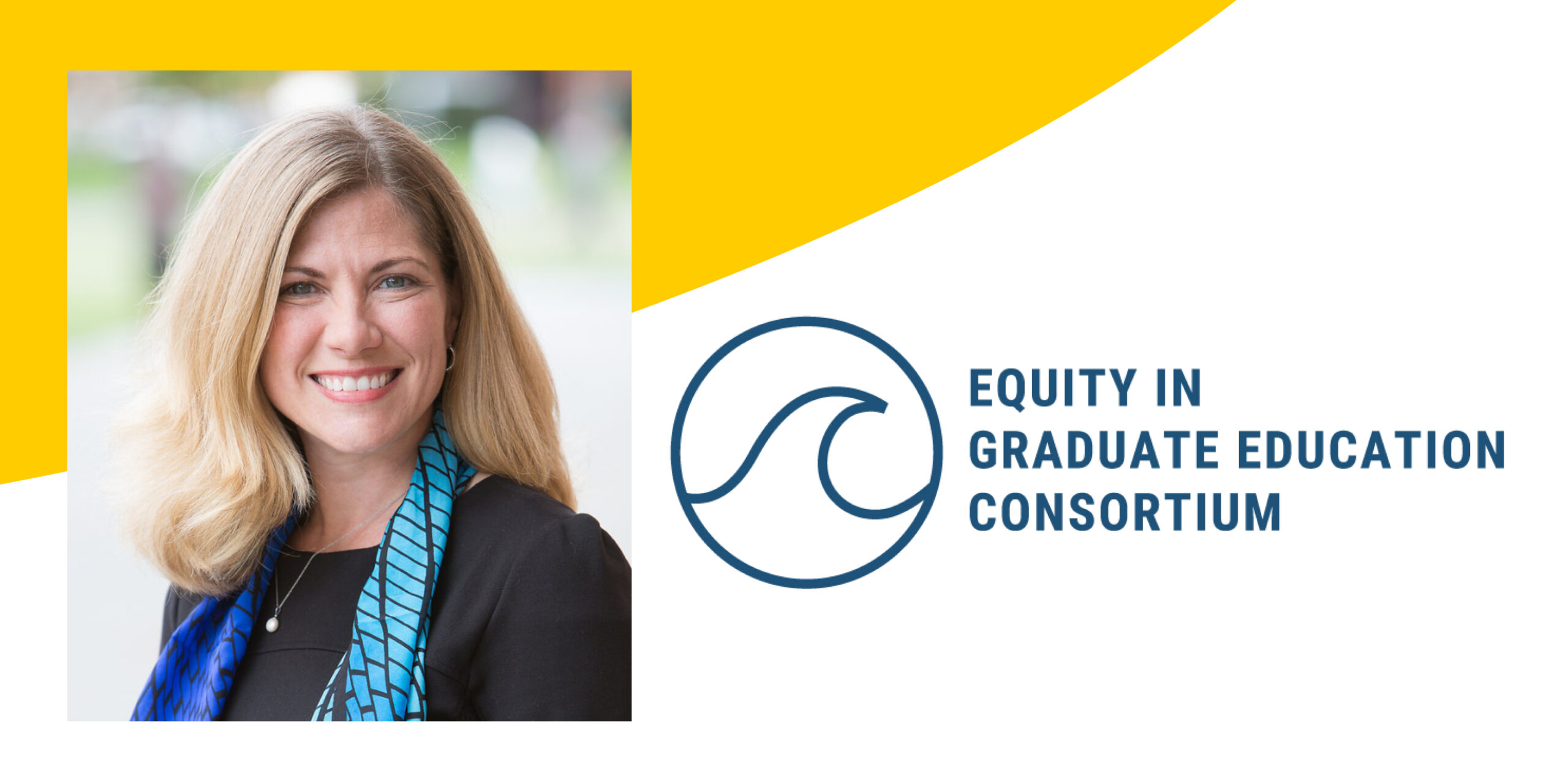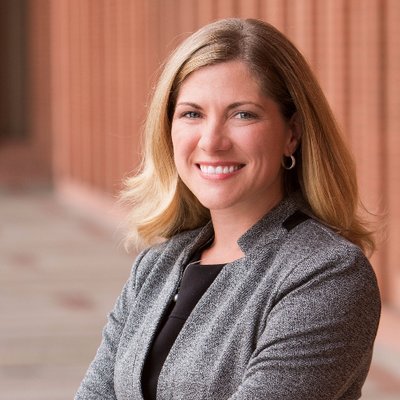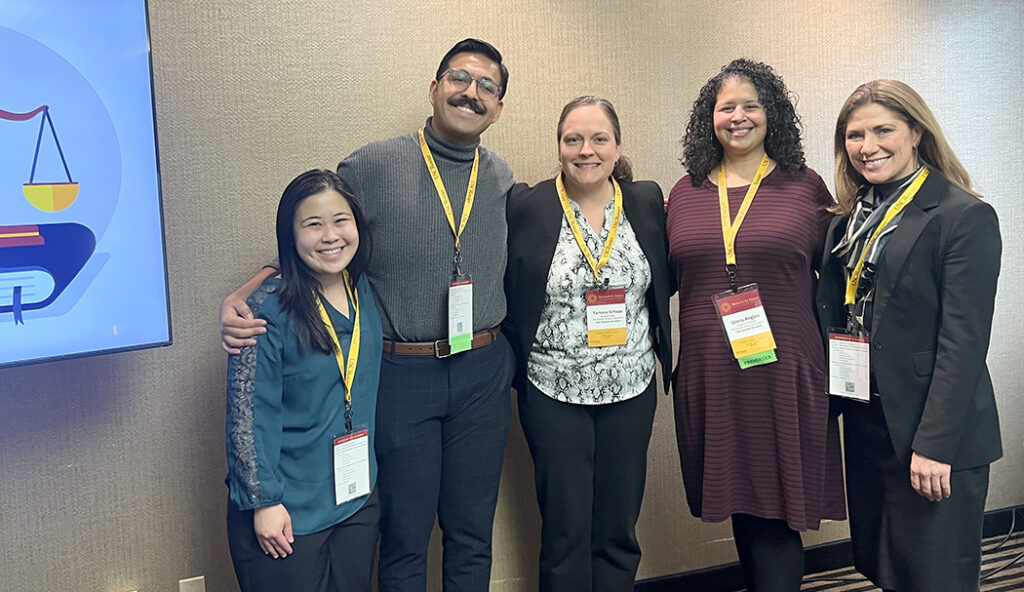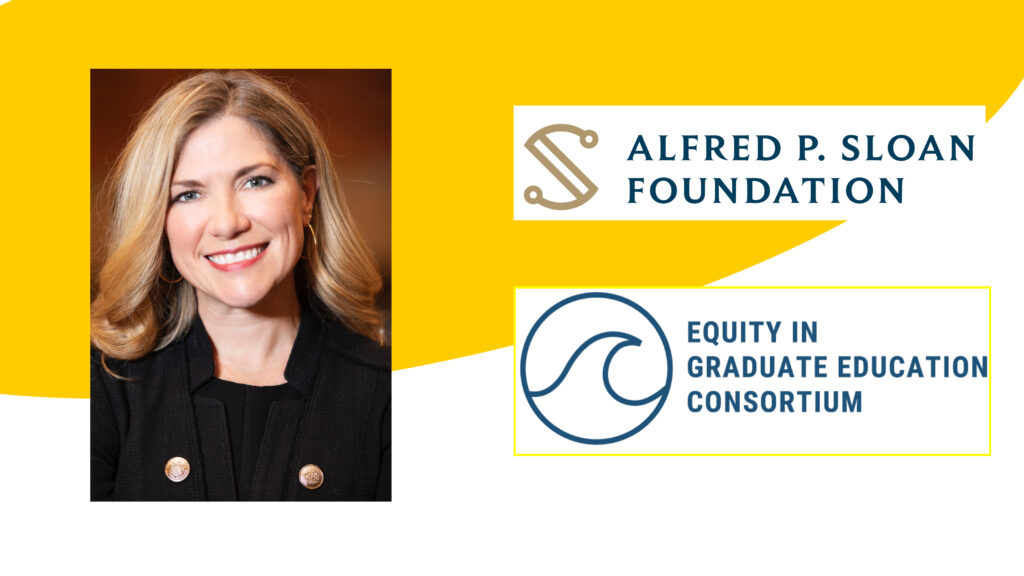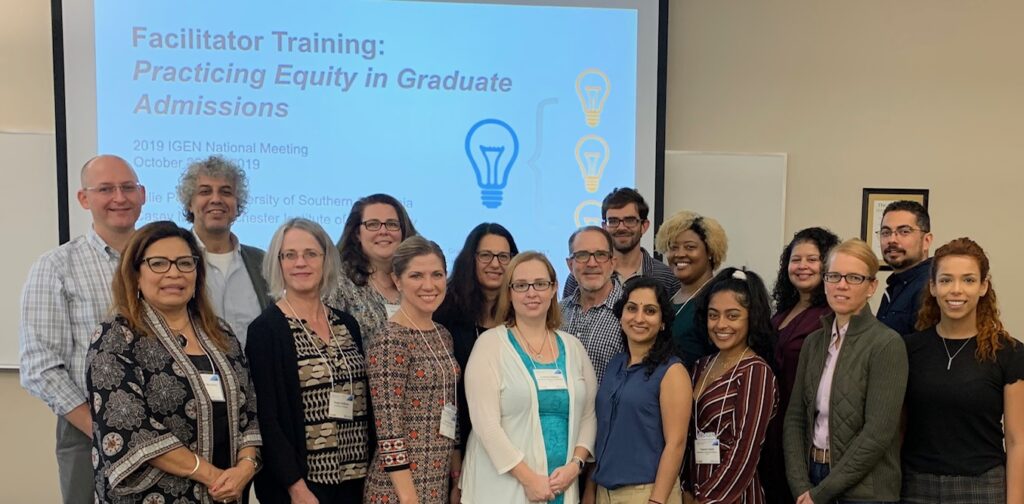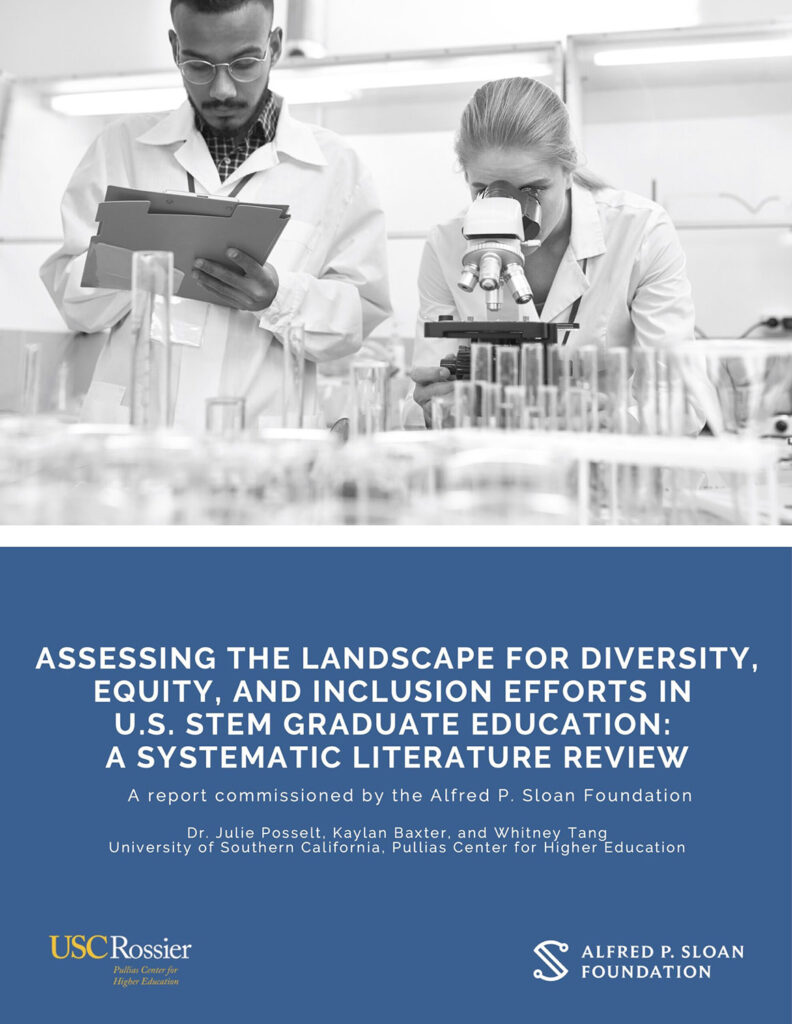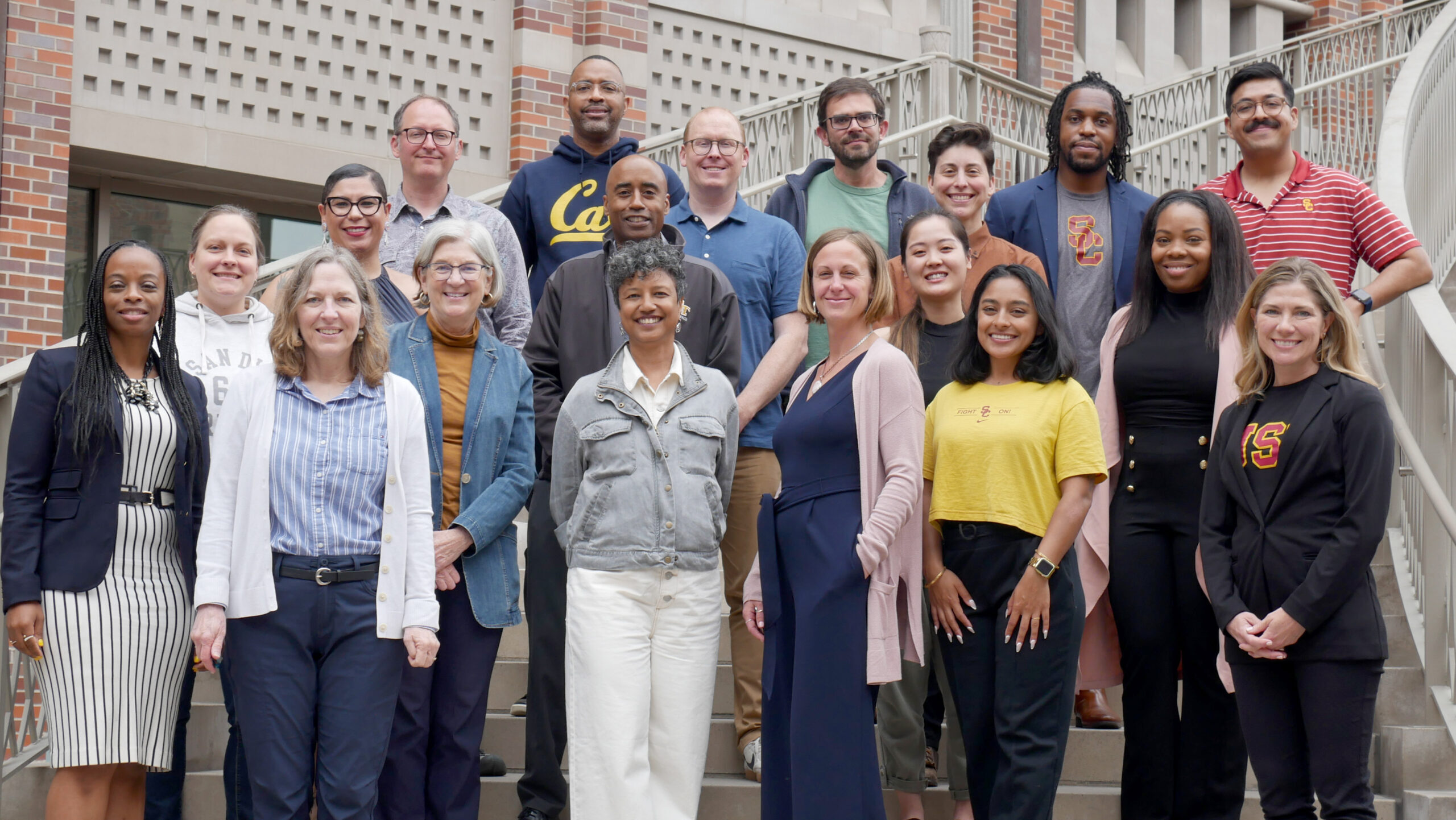
Description
The Equity in Graduate Education Consortium (EGE) is the national scale up of the California Consortium for Inclusive Doctoral Education (C-CIDE) pilot. The consortium is a research-practice partnership of faculty and administrators in major research universities that aims to reduce inequalities in graduate education, by developing and advancing equitable admissions, recruitment, mentoring, and training practices. The Consortium supports change-ready Ph.D. programs that are rethinking policy and practice, and supports graduate schools in developing a sustainable infrastructure for faculty-to-faculty learning opportunities.
About

Despite a growing body of research about racial equity in graduate education, most faculty are not expected or given opportunities to engage with it. More and more faculty and graduate programs express commitments to racial equity and diversity, and want to contribute to cultural change, but few have knowledge, skill or support to realize these goals. Systemic and cultural change are never simple, but they are feasible with evidence, relevant tools, change management strategies and supportive colleagues.
By piloting, studying and refining a community-driven, multi-campus model that links institutional change and faculty development, C-CIDE created a path to normalizing practices that more equitably select and serve talented students from the country’s emerging majority. With support from a 2018 NSF Innovations in Graduate Education pilot grant, leaders of six universities (UC-Berkeley, UC-Davis, UC-Irvine, UC-San Diego, UC- Santa Barbara, & USC) and 24 STEM Ph.D. programs within the universities created a networked improvement community.
Now, with support from the Alfred P. Sloan Foundation, C-CIDE has scaled-up nationally, under the new name Equity in Graduate Education Consortium.
With support from Research England and the UK Office of Students, it is being replicated in England (as the Yorkshire Consortium for Equity in Doctoral Education (YCEDE). YCEDE is a collaboration between five universities in Yorkshire, 12 UKRI funded Doctoral Training partnerships and Centres for Doctoral Training plus a number of external partners dedicated to equity at doctoral level. Central to YCEDE is the question of access to doctoral study for graduates from Black, Asian and Minority Ethnic backgrounds.To learn more about the Equity in Graduate Education Consortium, our support for PhD programs and faculty, research and evaluation, and what’s next, visit the Equity in Graduate Education Resource Center site:
Project News
Project Team
Julie Posselt
Principal Investigator
Associate Professor of Education, USC
Associate Dean, USC Graduate School
Steve Desir
Director for Professional Learning and Organizational Development
Assistant Professor of Research, USC
Yasmin Kadir
Consortium Manager, USC
Kelly Rosinger
Project Evaluator, Penn State
Casey Miller
Senior Advisor, Rochester Institute of Technology
Stephanie Santos
Senior Advisor, Rochester Institute of Technology
Aireale Rodgers
Assistant Professor
University of Wisconsin-Madison
Gloria Anglon
Research Assistant
Publications
Funders

This project is funded by a National Science Foundation Innovations in Graduate Education (NSF-IGE) award under grant No. DGE-1807047. The official title of the grant is “Scaling Faculty Development to Broaden Participation in Graduate Education.” Any opinions, findings, and conclusions or recommendations expressed in this material are those of the author(s) and do not necessarily reflect the views of the National Science Foundation.
The Alfred P. Sloan Foundation is a not-for-profit, mission-driven grantmaking institution dedicated to improving the welfare of all through the advancement of scientific knowledge. Established in 1934 by Alfred Pritchard Sloan Jr., then-President and Chief Executive Officer of the General Motors Corporation, the Foundation makes grants in four broad areas: direct support of research in science, technology, engineering, mathematics, and economics; initiatives to increase the quality and diversity of scientific institutions and the science workforce; projects to develop or leverage technology to empower research; and efforts to enhance and deepen public engagement with science and scientists.



